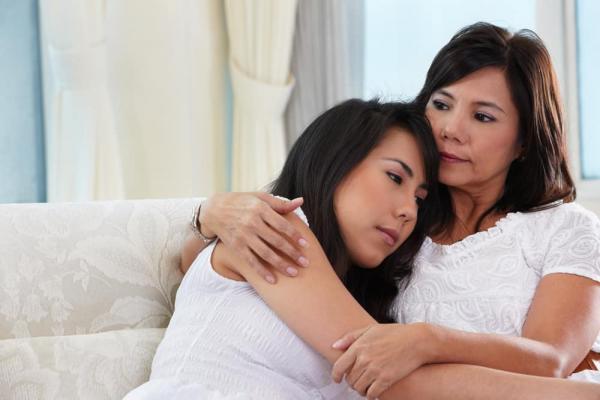
"What do you want your relationship with your child to be like?" I asked a group of dedicated parents attending one of my Teaching Self-Government workshops.
"I just want to be my daughter's friend," said one mother, "but she doesn't treat me like one, even though I try so hard."
"Who doesn't want to have a great, friendly relationship with their child?" I replied with a knowing smile. "We all do. However, treating your daughter like your best friend is not the way to end up with her as your best friend. I know that sounds kind of backward, but it's true. This is the reason why you're not best friends."
The role of roles
I continued to explain to that mother the importance of roles when it comes to our relationships with our children. Parents have a self-evident role as "The Mother" or "The Father" in their kids' lives. If parents try to exchange that role for that of the best friend, parents and children alike will suffer from feelings of imbalance, lack of identity and disconnection. Our familial roles actually help us become secure as we learn and grow. If parents assume the role of the best friend, that leaves the child without the mother or father that they desperately need.
Children rely on their parents to live their proper roles. When parents magnify their roles as leaders instead of friends, they will take the time to lovingly correct and instruct their children, which leads to greater feelings of connection and love in the long run.
While some people may choose friends that call them out on bad behavior, more often we choose friends that make us feel good about ourselves and accept us just the way we are. Our children don't need another friend — they need parents who love them enough to correct them and teach them and raise the bar for their behavior.
Parenting models
Once I finished explaining this concept of family roles, I looked to the mother only to see frustration still written across her face. She raised her hand to voice another point.
"That sounds like good advice but I want more than to just be the one correcting her all the time," the mother replied, the frustration still evident in her voice. "I want to have the kind of relationship that I had with my own mother when I was a young woman. We were best friends. I see parents and children all the time who are obviously best friends. They laugh and play and talk openly with each other. They respect each other and like being with each other. I want this kind of relationship with my daughter, too. But she doesn't seem to care about respecting me even though I am respecting her by being her friend."
I could see that this mother had bought into a popular idea floating around these days: that the only way to attain a loving, respectful, close relationship with her daughter was to be her friend instead of her parent.
I asked my daughter Paije, who was 15 at the time, to come to the front of the room. I asked her, "Paije, who is your best friend?"
"Well, you are my first best friend and my brother Quin is my second best friend," she replied confidently.
At this point confusion clouded the woman's face. I could see she was wondering why I was instructing her not to try to be friends with her daughter when my own daughter obviously saw me as a friend.
Next I asked Paije, "Who corrects you more than anyone else?"
"You."
"Who usually gives you chores to do?"
"You."
"Who helps you get calm when you have an attitude problem or get frustrated?"
A smile snuck across her face as she said, "You mom. You do all those things, but that's why we're best friends. You're a good mom. You do mom things. You help me be a good daughter and learn respect. When we are both living our best at our family roles then we just become best friends I guess."
The woman nodded her head and smiled to herself. She finally understood.
Looking at the woman I said, "I bet your parents taught and corrected you all the time. I bet they expected respect from you even when you were a little girl. This constant instruction led to deep friendship when you were older."
"That's true. I would never have gone against their teachings," she admitted. "I had forgotten that."
Solutions
Our family relationships are meant to supply us with the dearest friendships we experience during our lives. It's important to remember that deep friendship comes by living our family roles first, then enjoying the natural progression to friendship, as our children get older.
It's important to remember that when our children know they have parents who look out for them, it makes them more confident in all their other relationships outside the home as well.
"So you see," I explained to the woman at the workshop, "it is possible to have your child as your best friend. However, that friendship needs to be recognized as a result of teaching, correcting and loving as a mother and daughter should love. Hoping for friendship instead of, or as a substitution for kinship is wanting to live a lie."
To learn how to correct and teach your children while developing a deep connection go to http://parenting.teachingselfgovernment.com

